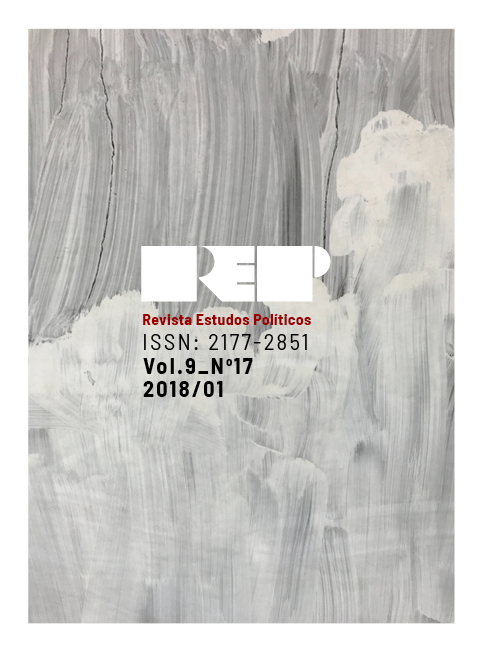Extreme right parties in Europe today: definition and electoral performance
DOI :
https://doi.org/10.22409/rep.v9i17.39854Mots-clés :
extreme right, political parties, populism, European politics, electionsRésumé
Since the 1980’s, many European countries known for their consolidated democratic systems, have experienced the unexpected electoral emergence of so-called extreme right or populist radical right parties. With the development of recent elections in the Netherlands, France, Germany and Austria, extreme right parties such as the Dutch Party for Freedom (PVV), the French National Front (FN), the Alternative for Germany (AfD) and the Freedom Party of Austria (FPO) have attracted attention both from the media and in academic investigation, because of their radical and populist appeals, as well as their relevant electoral results. What do these parties have in common? Do they belong to a single party family? More recently, what has been their electoral support in different countries and types of elections? To contribute to introductory comparative understanding about this topic, this paper will examine the existing literature, and analyze descriptive electoral data of recent contests. The aims of this work are twofold. First, it intends to provide theoretical background about discussions on the terminology and party family definition, which will be done grounded on the specialized literature. I argue that extreme right parties can be defined based on three features: identitarian politics, authoritarian values and a populist style. Second, this work assesses the current electoral performance of main extreme right parties across European countries, using descriptive data collected from three platforms: “ParlGov”, “Parties and Elections in Europe” and “European Elections Database”.Téléchargements
Téléchargements
Publiée
Numéro
Rubrique
Licence
Para submeter um manuscrito, os autores devem realizar o cadastro na plataforma, fornecer os dados solicitados e seguir as orientações recomendadas. Para tanto, será necessário apresentar o número da identidade de pesquisador. Para obtê-lo, é necessário realizar o cadastro na plataforma Open Researcher and Contributor ID (ORCID).
Ao submeter um manuscrito, os autores declaram sua propriedade intelectual sobre o texto e se comprometem com todas as práticas legais relativas à autoria. A submissão implica, ainda, na autorização plena, irrevogável e gratuita de sua publicação na REP, a qual se responsabiliza pela menção da autoria.
A REP tem acesso aberto e não cobra pelo acesso aos artigos.
Orientando-se pelo princípio de que tornar público e disponibilizar gratuitamente o conhecimento científico contribui para a democratização mundial do conhecimento, a REP adota a política de acesso livre e imediato ao seu conteúdo.
No mesmo sentido, a REP utiliza a licença CC-BY, Creative Commons, a qual autoriza que terceiros distribuam, remixem, adaptem e criem a partir do trabalho, inclusive para fins comerciais, desde que se reconheça e torne público o crédito da criação original.
Para mais informações, contatar a editora através do e-mail revistaestudospoliticos@gmail.com


